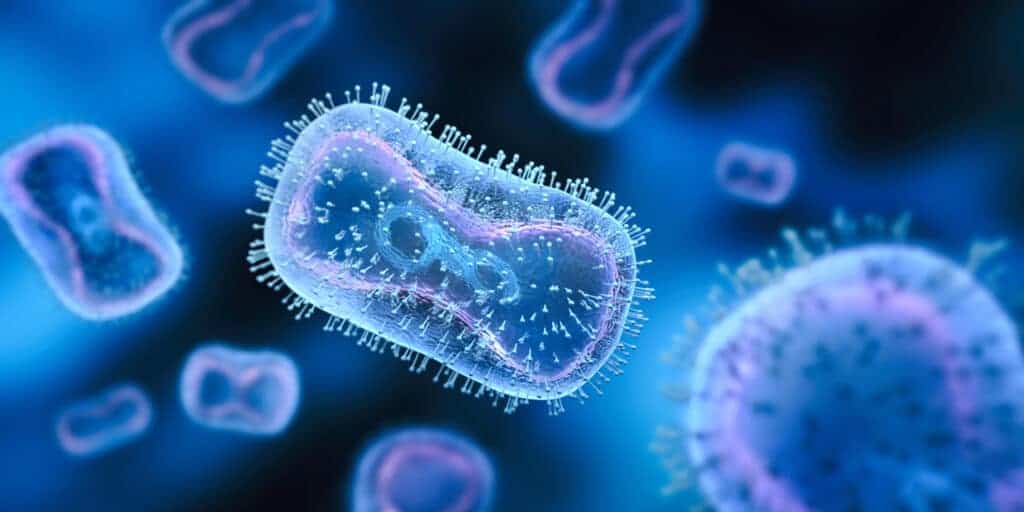While disinfection of a private water well is essential if you are to have healthy water, there’s a right way and a wrong way to do it. Unfortunately, many advisors tell well owners to dump a quantity of household bleach into the well and then run the taps to flush it out of the system. Even if you flush the water out of the system for 10 to 24 hours, you may still perceive a chlorine odor to the water. Aside from the offensive smell, no one wants to drink or shower in water that smells like chlorine bleach.
The fact is that household bleach is the wrong chemical to use for disinfecting a private water well. Chlorine bleach is heavier than water. This means that it will promptly fall to the bottom of the well. The microorganisms you want to kill float near the top of the water so that they are not subjected to the greater pressure at the bottom of the well.
This heavier chemical substance also has a tendency to get trapped in corners and pockets of your plumbing system. It can be hard to flush out all these pockets, which is why the smell can persist for days or weeks. An official of the National Ground Water Association told the story of a well owner who tried to disinfect his well with six gallons of household bleach. After flushing thousands of gallons of water through his system, his water still smelled like bleach.
Don’t make the mistake of pouring household bleach down your water well. Instead, use an FDA-approved disinfectant that will do a more thorough job and flush out more fully.
Disinfecting the Better Way: Calcium Hypochlorite
The Food and Drug Administration has approved calcium hypochlorite for private well disinfection. This chemical is less toxic and more effective at eliminating microorganisms. In our disinfection kits, it comes as a powdery substance that, when added to a well, will float on the top of the water where the bacteria, fungi and other microorganisms are. Gradually, it will make its way to the bottom of the well.
Calcium hypochlorite is more effective in eliminating microorganisms and slime that accumulate in your well. It is also safe to consume the water after it has been fully flushed. As another advantage, there is no risk of burns or damage to your clothes with this powdery substance like there is with household bleach.
There is yet another benefit to using calcium hypochlorite for your well disinfection. This chemical will not interact with organic contaminants in your well like household bleach will. There are thousands of organic contaminants found in water wells, including:
- Industrial solvents
- Hydrocarbons like benzene, xylene and toluene
- Pesticides like chlordane.
- Herbicides like alachor or Silvex
- Decaying vegetation
Your favorite laundry bleach is made from sodium hypochlorite. Sodium hypochlorite plus organic contaminants results in carcinogenic chemicals called trihalomethanes. Using calcium hypochlorite avoids the production of trihalomethanes.
What to Do After the Disinfection Process is Complete
Ten days later, you should test your well water to ensure that the disinfection has been completely effective. In some cases, such as when a well has been sitting idle for months or years, it can take repeated disinfection treatments to return it to full health.
There may also be some continuing source of infiltration by microorganisms. When our technicians have done inspections of wells, they have found damaged well caps that allowed bugs or even mice to enter the well. One time, a technician found a nest of bees inside the well. If a casing is damaged, vegetation may be able to enter the well. Any source of continuing contamination must be found and eliminated if this followup test reveals the presence of more microorganisms.
When we provide test results to our water testing customers, we very often help them dig deeper to find out why there seems to be continuing contamination. With our experience and skill, we help them detect the right cause of the problem. If you need help getting your water well healthy again, call us at (800) 344-9977 to find out the best and most effective test and disinfection process to use. We are dedicated to helping private well owners maintain healthy wells.

